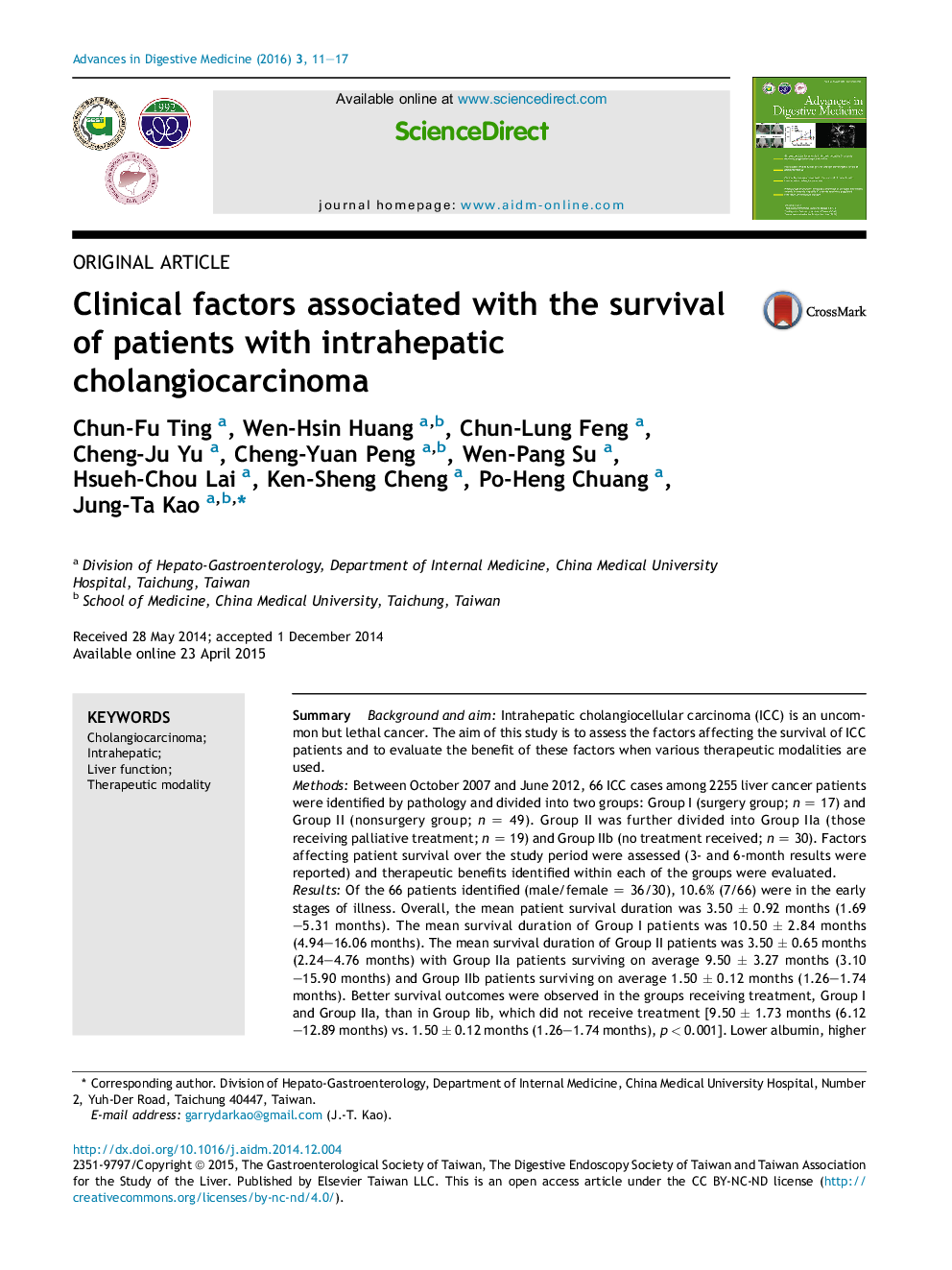| Article ID | Journal | Published Year | Pages | File Type |
|---|---|---|---|---|
| 3278531 | Advances in Digestive Medicine | 2016 | 7 Pages |
SummaryBackground and aimIntrahepatic cholangiocellular carcinoma (ICC) is an uncommon but lethal cancer. The aim of this study is to assess the factors affecting the survival of ICC patients and to evaluate the benefit of these factors when various therapeutic modalities are used.MethodsBetween October 2007 and June 2012, 66 ICC cases among 2255 liver cancer patients were identified by pathology and divided into two groups: Group I (surgery group; n = 17) and Group II (nonsurgery group; n = 49). Group II was further divided into Group IIa (those receiving palliative treatment; n = 19) and Group IIb (no treatment received; n = 30). Factors affecting patient survival over the study period were assessed (3- and 6-month results were reported) and therapeutic benefits identified within each of the groups were evaluated.ResultsOf the 66 patients identified (male/female = 36/30), 10.6% (7/66) were in the early stages of illness. Overall, the mean patient survival duration was 3.50 ± 0.92 months (1.69–5.31 months). The mean survival duration of Group I patients was 10.50 ± 2.84 months (4.94–16.06 months). The mean survival duration of Group II patients was 3.50 ± 0.65 months (2.24–4.76 months) with Group IIa patients surviving on average 9.50 ± 3.27 months (3.10–15.90 months) and Group IIb patients surviving on average 1.50 ± 0.12 months (1.26–1.74 months). Better survival outcomes were observed in the groups receiving treatment, Group I and Group IIa, than in Group Iib, which did not receive treatment [9.50 ± 1.73 months (6.12–12.89 months) vs. 1.50 ± 0.12 months (1.26–1.74 months), p < 0.001]. Lower albumin, higher bilirubin, higher CA19-9, advanced tumor stage, and no treatment were identified as important predictors of patient mortality at the 3- and 6-month time-points. These factors remained relevant throughout the entire study period (p = 0.002, 0.029, 0.027, 0.028, < 0.001, respectively).ConclusionThis study identified surgery as the treatment that provided the best survival prognosis for patients with ICC. Treatment involving either chemotherapy or radiotherapy could also prolong ICC patient survival. Better liver preservation, lower CA19-9, and less aggressive tumor conditions were identified as factors which play crucial roles in enhancing patient survival.
